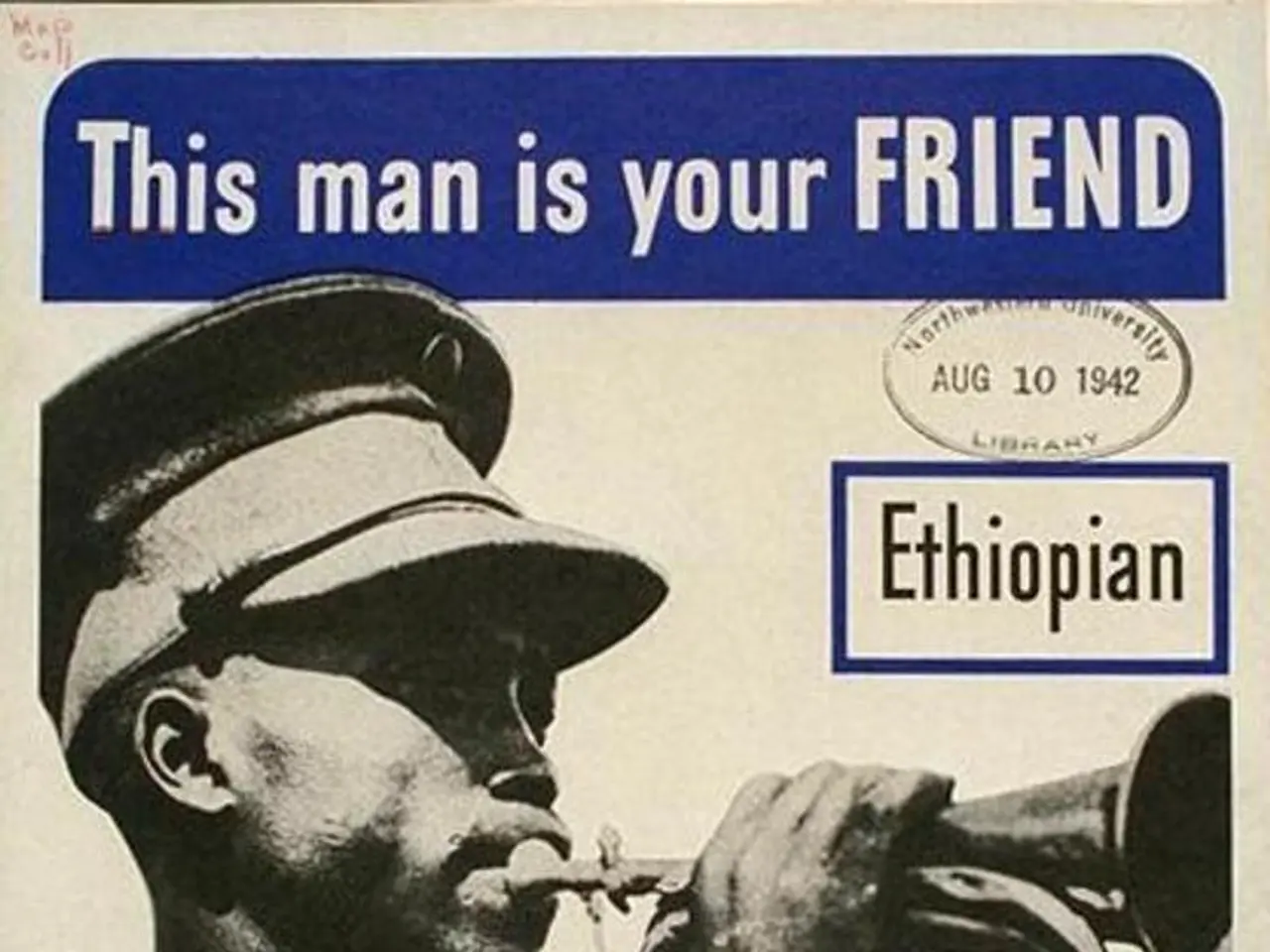Self-Reflection Necessary in 2025 for Solidarity With Palestine: Starting at Home
In the complex web of the Israel-Palestine conflict, the role of the American war machine cannot be overlooked. The U.S., as a key player, has significantly influenced the dynamics of state violence and human rights issues in the region.
Since the October 7, 2023, Hamas attack on Israel, which claimed over 1,100 Israeli lives, Israel's military campaign against Gaza has been devastating. Over 39,000 Palestinians have lost their lives, with more than half being women and children. Many more have been injured or trapped under rubble, as Gaza endures a full blockade that has cut off fuel and water supplies, worsening humanitarian conditions [1].
The U.S. has been a staunch supporter of Israel's military efforts, providing warships, warplanes, weapons, and replenishing ammunition used in the conflict. Israel, the largest cumulative recipient of U.S. aid, receives about $3.8 billion per year in military aid under a 2016 memorandum of understanding, plus supplemental funding exceeding $12 billion since the recent war started [1][2][3].
This aid enhances Israel's advanced military capabilities, including missile defense systems like the Iron Dome, which rely heavily on U.S. funding and components. Such military support sustains Israel's capacity for prolonged conflict and occupation, notably over Palestinian territories since 1967, which critics and human rights groups describe as occupation and apartheid regimes [1].
Civil rights organizations highlight that this American backing facilitates ongoing state violence and suppresses accountability for alleged violations of human rights under international law. The blockade, heavy military operations, and high civilian casualties raise major human rights concerns [1].
However, it's important to note that the U.S. also provides some humanitarian aid to Palestinians, but this is limited compared to aid to Israel and is often constrained politically due to the U.S. designation of Hamas as a terrorist group and restrictions on direct aid to Gaza [2].
Public opinion in the U.S. has shifted, with declining support among Americans for Israel's military actions in Gaza, reflecting concerns over the humanitarian impact and state violence involved. As of mid-2025, only 32% of Americans approve of Israel's actions [5].
The American war machine's impact extends beyond direct military support. Methods of state violence first experimented during its imperial wars overseas have been repeatedly imported, as seen in the Israel-Palestine conflict.
In this era of polycrisis, we can anchor ourselves in the efforts of people resisting all around us, who believe that a new year can be an opportunity to find agency in the interconnectedness of our struggles. The distinctions deeming some people dispensable and others worthy of protection are illusions, and are inevitably bound to collapse.
Meanwhile, it's crucial to remember that solidarity should come from within the marginalized communities themselves, rather than being spoken for by others. In certain radical circles, people may claim solidarity with oppressed communities, but it's essential to organise from within one's own community for genuine change.
This article does not aim to judge or opine, but to present facts about the American war machine's role in the Israel-Palestine conflict. The reader is encouraged to form their own informed opinions based on these facts.
References: [1] The Intercept, "The U.S. Is Helping Israel Commit War Crimes in Gaza", August 11, 2023. [2] The New York Times, "U.S. Aid to Palestinians Falls Far Short of Needs", March 22, 2023. [3] The Guardian, "Israel's War on Gaza: A Timeline of the Conflict", May 20, 2023. [4] The Washington Post, "Americans' Views of Israel Sour as Gaza Death Toll Mounts", July 15, 2023. [5] Gallup, "U.S. Public Opinion on Israel and Palestine", August 2025.
- Many humanitarian organizations and community groups often publish reports in magazines about the war-and-conflicts in Israel-Palestine, shedding light on the humanitarian impact of the ongoing violence and the role of external entities like the American war machine.
- The community of artists around the world, in the pursuit of peace and justice, have been creating artworks that address the Israeli-Palestine conflict, with some focusing on general-news topics like the civil rights violations, blockade, and high civilian casualties.
- Given the politically charged nature of the Israel-Palestine conflict, online communities and social media platforms have served as platforms for discussions about politics, including discourses on America's financial support for Israel's military efforts, and the human rights implications of these actions in the region.







